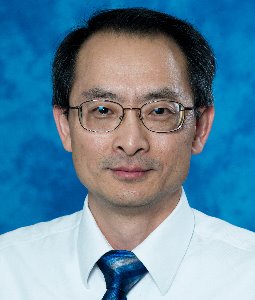Molinaroli College of Engineering and Computing
Faculty and Staff
Daping Fan
| Title: | Professor, School of Medicine, Biomedical Engineering |
| Department: | School of Medicine, Biomedical Engineering Molinaroli College of Engineering and Computing |
| Email: | Daping.Fan@uscmed.sc.edu |
| Phone: | 803-216-3834 |
| Fax: | 803-216-3846 |
| Office: |
School of Medicine Bldg 1 |

Education
- Post-doctoral Fellow, Vanderbilt University, 2004-2008
- Ph.D., Chemical Engineering, Southern Illinois University, 2004
- M.D., Nanjing University Medical School, P.R.China, 1994
- B.S., Medicine, Nanjing University Medical School, P.R.China, 1992
Research Overview
The rupture of vulnerable atherosclerotic plaques and the resulting thrombosis are the direct causes of heart attack and stroke, the No. 1 and No. 3 killers in the United States and many other developed countries. Atherosclerosis is both a lipid deposit disease and a chronic inflammatory condition. Macrophages are the primary cholesterol sinks as well as dominant inflammation machines in atherogenesis. Macrophage foam cell formation and inflammatory responses form a vicious cycle and promote atherogenesis. The goal of the research in our laboratory is to develop strategies to disrupt the vicious cycle and promote the regression of atherosclerotic plaques through restoring macrophage cholesterol homeostasis and controlling macrophage inflammation.
Myeloid cells are the major cell component of the tumor microenvironment (TME), whose interaction with malignant cells determines the aggressiveness of the tumor. Myeloid cells in TME are mainly myeloid-derived suppressor cells (MDSCs), dendritic cells, and tumor-associated macrophages (TAMs). In advanced tumors, due to the unique features in TME including hypoxia, abundance in cytokines/chemokines and Toll-like receptor (TLR) ligands, and an unusual metabolic profile, a complex signaling network tunes the dynamics and function of the myeloid cells in favor of cancer progression. Our research is focused on understanding this signal network and developing strategies to manipulate it to improve cancer treatment.
Publications
For Dr. Fan's publications please see NCBI website